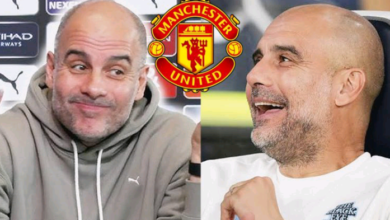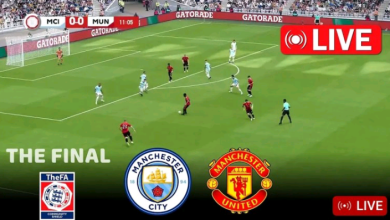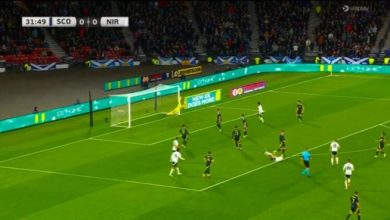Anthony Taylor explains five reasons for his errors during the #Manchester City Vs Chelsea game and apologizes to the Chelsea supporters, saying “It was not my decision.”

On August 18, Chelsea and their supporters were left fuming after what they perceived to be a blatant penalty was denied during their Premier League opener. The Blues squared off against Manchester City at Stamford Bridge to kick off the 2024–2025 season, a match that quickly became a source of frustration for the home side.
The game started with Erling Haaland, Manchester City’s star striker, netting his first goal of the season just 18 minutes into the match. A long ball over Chelsea’s goalkeeper, Robert Sanchez, allowed Haaland to put his team ahead, setting the tone for a challenging day for the Blues.
Despite the early setback, Chelsea gradually found their rhythm. Enzo Maresca, in his debut as Chelsea’s manager, was keen to make a strong impression and sought to guide his team to an early advantage. However, his plans were thwarted by a controversial decision that left the Chelsea faithful in disbelief.
The incident that sparked outrage involved Chelsea’s attempts to win a penalty, led by Enzo Fernandez. Throughout the match, the Blues made several appeals for a spot-kick, but referee Anthony Taylor remained unmoved. The most contentious moment came in the second half when Mateo Kovacic, a former Chelsea player now with Manchester City, became the center of attention.
Kovacic was involved in an incident where his arm made contact with a pass from Chelsea’s Malo Gusto. The Chelsea players and the home crowd immediately called for a penalty, convinced that Kovacic’s handball warranted a spot-kick. However, Taylor once again refused to award the penalty, further inflaming tensions.
To understand why the penalty was not given, it’s essential to look at the football regulations, specifically IFAB Law 12, which governs handball offenses. The law states that a player is guilty of a handball infraction if their hand or arm makes contact with the ball in a way that causes their body to appear unnaturally larger. This includes situations where the player’s hand or arm is not in a position justified by their body movement during that particular scenario.
In Kovacic’s case, while the replays suggested that the ball struck his underarm, the proximity of Gusto to the goal played a crucial role in the decision. The referee has the discretion to apply what is known as the “proximity law,” which assesses whether the player had enough time to move his arms into a natural position before the ball made contact. Given the close distance between Gusto and Kovacic, Taylor likely determined that Kovacic had no time to react, which contributed to the decision not to award a penalty.
A statement from the Premier League highlights that referees take into account a player’s proximity to the ball when deciding on handball offenses. This rule allows for some leniency in cases where the player has little time to react, as appeared to be the case with Kovacic.
Adding insult to injury for Chelsea, Kovacic went on to score Manchester City’s second goal shortly after the controversial incident, solidifying City’s strong start to their title defense and deepening the Blues’ frustrations on what turned out to be a disappointing day at Stamford Bridge.




